Homeschooling for Empowerment
Homeschooling gives you the tools to explore or develop your own gifts. Public education teaches a subject, while homeschooling teaches a student.
It’s the day after Labour Day — the most anticipated day in the whole year. Myriads of parents are eagerly feeding their kids, making up lunch boxes, gathering brand new school supplies into brand new backpacks. The hope is for peace and quiet. No more sibling fights. No more wars about unmade beds. Peace.
Myriads of kids are waiting in eager anticipation of seeing their friends again, after a 2 month break. They’re a bit nervous about the new face at the front of the classroom — will he/she be nice, nasty or boring? And then there are the new kids, that necessitate the pecking order to be reestablished. Why?
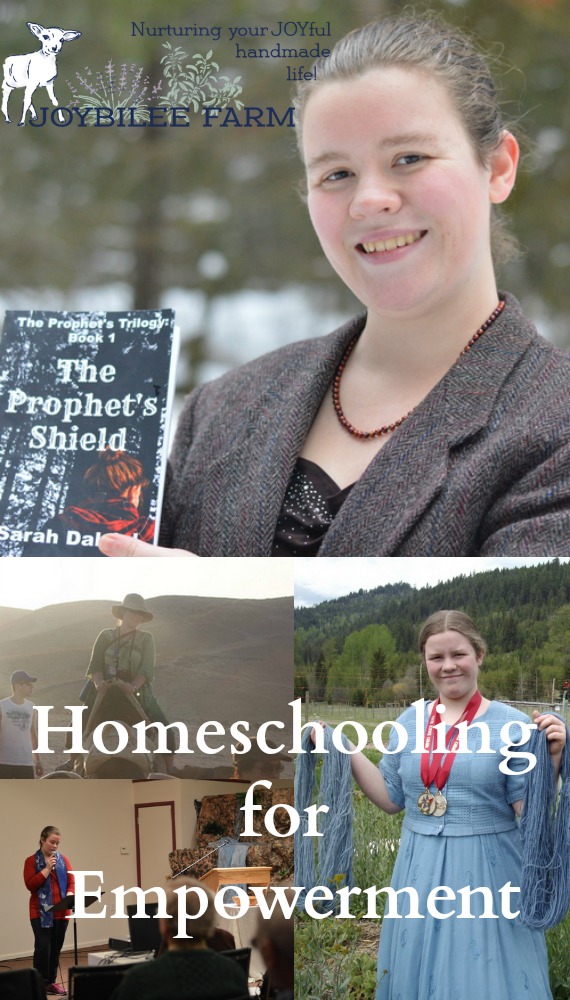
Is it for socialization? No. Kids that never know the anxiety of school are better socialized with all age groups. They have more confidence and do better at standardized tests. They consistently perform better at university, too.
Why then, do we have public schools? The real reason that public school and compulsory education were begun in Canada was to “assimilate alien elements”, according to school promotor, Egerton Ryerson. Canada was a diverse culture made up of aboriginals and immigrants. Literacy and the teaching of specific knowledge were not the purposes — these things were already being taught at home. The purpose of compulsory education was to maintain the status quo and make everyone in Canada think the same, act the same and vote the same — the same being predominantly white, Protestant and English (culture not language). The learning outcomes of compulsory education were to stop entrepreneurship, outside-the-box thinking, and creativity — and to create a population that scores well on standardized tests, obeys authority, works hard on the assembly line, and can be controlled by propaganda.
“The characteristic conviction of the school promoters was that mass schooling could be an effective instrument for instilling appropriate modes of thought and behaviour into children; in their minds, the purpose of mass schooling did not primarily involve the acquisition of academic knowledge. School systems were designed to solve a wide variety of problems ranging from crime to poverty, and from idleness to vagrancy. ” (History of Education, Canadian Encyclopedia)
Seth Godin makes the point that “Large-scale education was never about teaching kids or creating scholars. It was invented to churn out adults who worked well within the system. Of course, it worked. Several generations of productive, fully employed workers followed. ”
Most of us are the product of this school system. We struggle to apply logical, disciplined thinking when we listen to news stories, or read magazine articles or even surf the web. We see problems but are lost in a way to fix them. We see injustice but rationalize that there’s nothing we can do. We are trapped by our own lack of power, inside a box.
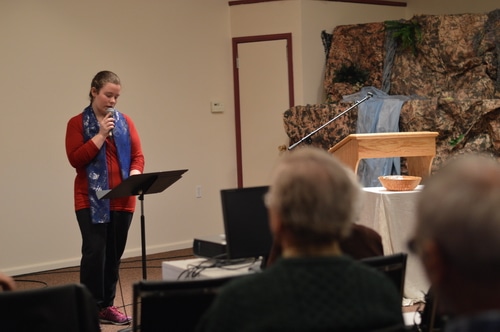
Homeschooling empowers.
How does homeschooling empower individuals?
- It gives you the tools that you need to transform your way of thinking — to move outside the constraints of the box.
- It allows your innate creativity to have a voice.
- It allows you to fail, in a safe environment, and so learn from each mistake.
- It gives you space to experiment — take a few steps, fall, get back up, take a few more steps.
- It celebrates your success.
- It lets you find your own path through creativity and hard work to fulfill your personal dreams.
What do you want to be when you grow up?
The problem with compulsory education is that after 12 to 20 years of education and the predominant question – “What do you want to be when you grow up?” Most of us grownups still can’t answer that question.
We have university grads who stay at our farm regularly who, after investing tens of thousands of dollars and 4 to 6 years in their education, still can’t answer that question. But often after 2 weeks at Joybilee Farm, the answers begin to come, and it’s not what they thought. A 2 week experience at Joybilee Farm is a kick-start to the homeschool education that they needed.
Homeschooling gives you the tools to explore your own gifts and develop new gifts. It lets you celebrate your own uniqueness and find out why God created you, gave you your life experiences and your family culture, and what the good works are that He planned for you to do. (Eph. 2:10) And lets you start doing those good works.
So if you are like me, a product of compulsory, public education, and you want to take back your own empowerment, creativity and clarity – begins today. I’m talking to you – an adult, whose finished school. Yes, you.
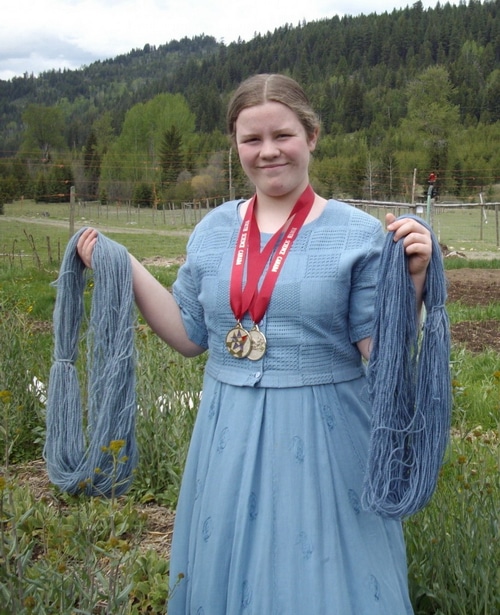
Where to start your own home education?
Get a notebook or journal and a pen that you are comfortable writing with. I prefer hardbound, sketchbooks with blank pages that let me “colour outside the lines”. I have several on the go at any given time, a different one for each area of interest.

Pick a subject – Literature, creative writing, calligraphy, watercolour painting, ethnobotany, natural dyes, tapestry weaving, harps and harpers, medicinal herbs, gardening, ancient languages, — whatever you have always wanted to learn about. That’s the best place to start.
While you could sign up for a class. You could attend a summit. But the important thing is to find your own voice and to reconnect with the thing you were made for.
How to begin your home education
Pick a subject!
What have you always wanted to learn? Where are you most drawn to? Start there.
Do a literature search
Do a literature search in your chosen subject area — make a list on your computer or in your notebook of every relevant book that is available in your subject. Don’t just search for recently published books, look at things that are no longer in print — use google books, project Gutenburg, Amazon kindle books and your public library. Pick 2 books, in your chosen subject, that you are most interested in and order them through inter-library loan or find used copies on Amazon. Often these are just pennies and 3.99 for shipping.
You will find the out-of-print books, available for Kindle or through project Gutenburg, invaluable for giving you a historical perspective on your subject. You can download a free app for Kindle for your PC or Apple computer. Once you’ve seen how many inexpensive or free out-of-print books are available for Kindle and can be downloaded in seconds, you will want one, too. We have 3 Kindle apps in our home and 3 Kindles. I would have saved a lot of money on the homeschool curriculum if I’d had a Kindle sooner.
(The newest Kindle has a light to help you read in dimly lit areas. Have a look.)
Don’t forget about audiobooks
For those times when you are doing mindless tasks, like cleaning or dusting, driving with kids in the car, or even walking on a treadmill, listening to an audiobook on a subject that you are interested in can elevate the activity from numbing mindlessness to stimulating creativity. A membership in Audible or Christian Audio will give you access to classic literature, business books, and bestsellers in many subject areas.

The first step in learning is observation – listening
Get a journal. As you read, write down the main thoughts in your notebook or journal. Respond to the main thoughts with your own voice. Draw or paint your response. Take a photograph as a response. We learn as we communicate our ideas — at first to ourselves. We are listening to a conversation that’s been going on for centuries, through our reading. Plus, when we write things down we remember them more easily.
Do this for every book that you read on your chosen subject. Don’t try to condense the entire book into your journal. I try to get 1 action point from every book I read. You may find more. Just find the take away point that will help you right now.
The second stage in learning is the logic or grammar stage
As you are exposed to your subject from the works of several different authors, you will begin to draw your own conclusions. Don’t be afraid to expose yourself to works that you may not immediately agree with. You will see that there are other sides to your subject matter. Record your thoughts at each step.
Learn the rules
Here you will learn the rules of engagement for your subject matter. As the study of design has rules for function, aesthetics, medium, colour, and form, so every subject has its own rules, that need to be learned by the student. As you discover these rules, write them down and design experiments for yourself that test these rules — do they always apply?
For instance, there is a “rule of 3” in design. You want anything that you design — a flower arrangement, a landscape, a knitted sweater or a tapestry to express its message using an odd number of elements. Always 3 or 5 or 7 roses, within an arrangement of other elements. A single rose speaks a more powerful message than 12 roses. Is this rule true? Test it by experimenting. Record your results. Experiment again. Draw your own conclusions. When is it safe to break the rules? This is the essence of learning and empowering your own vision.
Memorize or copy the Masters
Memorize important elements in your subject — landmark poems, rules of grammar, proofs of physics, for instance. Or in art – copy the paintings of the Masters. As we memorize or copy, we incorporated aspects of other people’s creativity into our own creative repertoire. The key here is to acknowledge the master in your copy. Don’t put it out as your own work. Give credit where credit is due.
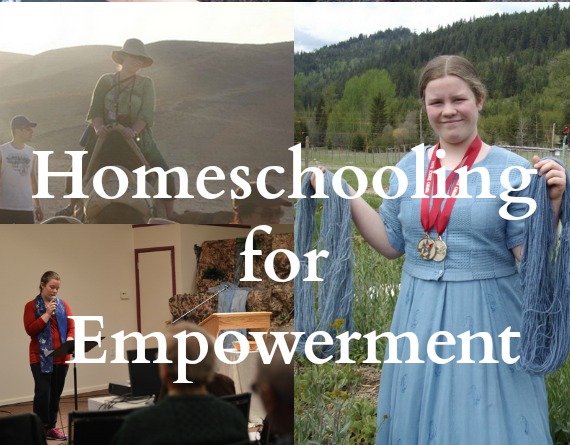
The third step in homeschooling is rhetoric or communication
From this immersion in your subject, taking rabbit trails as they come to you, you will gain a thorough understanding of what your subject holds up until now — the conversation that’s been taking place through history about your subject. As a homeschooler you can end your search — stop listening — at any time or you can go as deep as you want to in your subject matter. You don’t have to be finished by June.
When you are ready, formulate a response that synthesizes the knowledge that you’ve gained and offers a new perspective — your own unique voice or view — into the discussion.
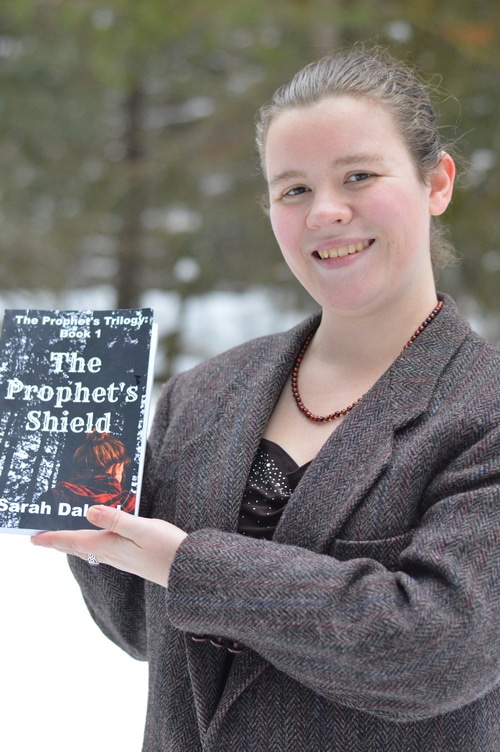
This would be the time to let your own voice be heard — if its a life long learning project — as my project on Fiber Arts and Botany is for me — then this would be the time to start a blog, create a video, write a book about what you’ve learned, and your own voice and understanding — your turn to enter the conversation, even while you continue to listen to the voices in your field.
If, for you, this learning experience is about learning how to learn — then create a final essay, collage, or picture about what you’ve learned, you can post it on a blog or submit it to a magazine, or just keep it for your own enjoyment, and then move on to a new subject.
That’s the essence of homeschooling. It is not doing public school at home, in your pajamas. It’s an entirely different approach to learning that takes into account the individual learning styles of the student. Public education teaches a subject, while homeschooling teaches a student.
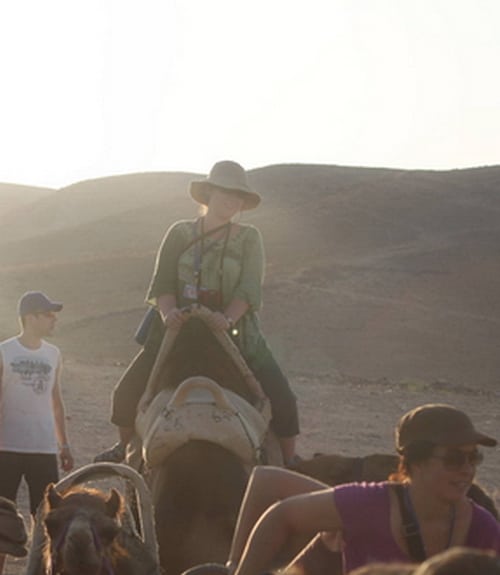
For the mom who homeschooling
If you are a homeschool teacher, struggling with the shoulds and musts of a public school system that is trying to impose itself on your homeschool. Take a deep breath. Reassess your methods. I’ve homeschooled three children through high school, designing a curriculum that exceeds all public school learning outcomes (It wasn’t hard!). I have a university graduate (with honours) who took all her coursework from home. Homeschooling is a joy for both the students and the teacher. Become empowered by beginning your personal homeschool education today.
Homeschooling Resources:
Some books that helped me formulate my ideas about homeschooling:
Teaching the Trivium: Christian Homeschooling in a Classical Style
A Charlotte Mason Companion: Personal Reflections on the Gentle Art of Learning



Leave a Reply